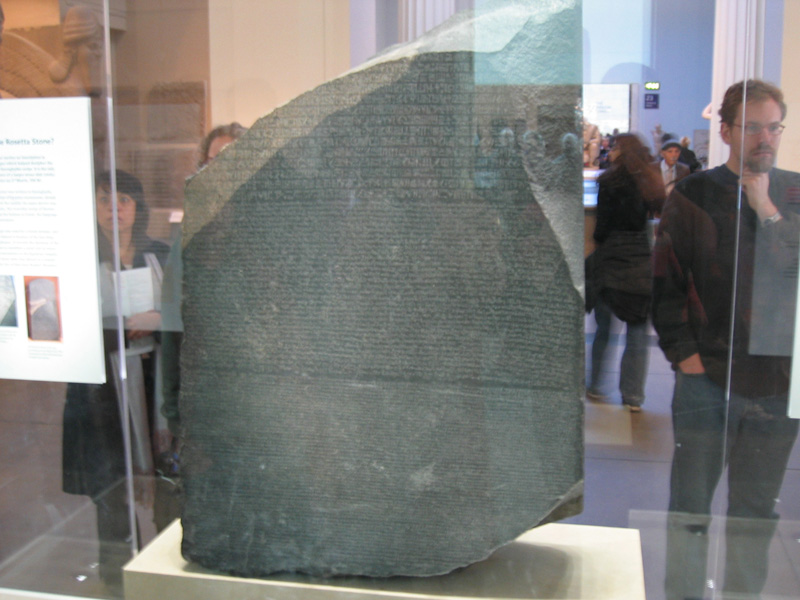 |
| The Rosetta Stone |
As some cultures died away, so did their languages, but some civilizations had written records. However, deciphering ancient languages is a challenge. There are a few hints found here and there, and that is about the only information given about the language. Something that really helped this process was the discovery of the Rosetta Stone in 1799. It had a text inscribed both in ancient Greek and Hieroglyphics, allowing historians at the time to use their knowledge of the Greek language to decipher the Egyptian Hieroglyphics.
If someone wants a primary source but is not able to speak the original language, they will be forced to rely on a translation. One problem with translation is that the original flow of a text can not always be carried over between languages. For example, in Homer's The Odyssey, even the best English translations do not have the full, identical rhythm and rhyme that the original does, and is not always able to preserve the beauty of the famous literary work. Translators might sometimes also find difficulty translating the nuances of a piece of literature. It obviously is not easy translating documents, but preserving meaning is of main concern. Perhaps there is a certain word or concept that the original language has but the new one does not. How does one go about translating this? There are certainly translators that are great at what they do, but no translation is perfect.
For my term paper, I considered using a translated document, but did not end up using it because it did not fit. However, it would have been interesting to learn what the original text was like (if I could read 16th century Spanish) and compare it to its translation. What would the similarities be? Was anything left out? What would the original author think of this translation?
I thin the that are some word that sound the same in ather country that soud the same as i spanish and mean the same....
ReplyDeleteYou bring up a really good point Kian. I remember reading the Odyssey and missing a bit of rhythm here and there, and I wonder what it would be like to read it in the original language. But there's a sense of impossibility; you can try as hard as possible to translate something perfectly, but there will always be something missing. You can't learn every language and every nuance, you just have to work with what you have. It's an interesting aspect of history that one has to take into account.
ReplyDeleteI like that you included the Odyssey as one of your pieces of evidence, because I think that it's an interesting representation of the development of language; the Odyssey was written with a particular rhythm because it was made to be recited and memorized, thus indicating the shift of language from oral to written
ReplyDelete